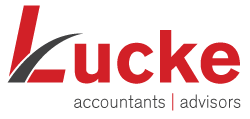Jeff Lucke, CPA, is the founder of Lucke & Associates, with an entrepreneurial background. Jeff has had ownership interests in businesses within several industries including automotive, construction, healthcare, telecommunications, and restaurants, as well as being active in real estate. As an owner of a growing CPA firm and other businesses, he has gained unique insights into the challenges and issues that face other growing businesses that most other CPAs do not have. This kind of knowledge ultimately benefits every one of the firm’s clients. He is very involved with clients and becomes deeply involved in their businesses and helping them succeed. Jeff is a graduate of the University of Nebraska and holds a Bachelor of Science in Accounting; his professional affiliations include the AICPA and KSCPA. Jeff currently serves a board member for his community on the Construction Financial Managers Association, the American Diabetes Association, and Big Brothers Big Sisters.
The Tax Cuts and Jobs Act includes many changes affecting tax breaks for employee benefits that will impact not only employees but also the businesses providing the benefits. Beginning with the 2018 tax year, the new law reduces or eliminates tax breaks in these 4 areas: transportation benefits, on-premises meals, moving reimbursements and employee achievement…
If a company’s deductible expenses exceed its income, generally a net operating loss (NOL) occurs. The upside is tax benefits: If the tax year generating the NOL ended on or before 12/31/17, the NOL can be carried back up to 2 years to generate an immediate tax refund and boost cash flow. Any remaining NOL…
Many people assume a company retreat must happen off-site. Not true: An on-site retreat is a cost-effective option. You won’t have to rent space and can probably save on locally catered food and bulk beverages. But employees often struggle to focus and find inspiration in-house. Off-site events can be a welcome and exciting change of…
A business will miss revenue opportunities if it doesn’t have a solid pipeline to funnel prospects to its sales team. To build one, profile customers that best suit your products or services. Use criteria such as location, industry and needs. Integrate companywide marketing initiatives with each salesperson’s efforts. When ready to reach out, consider three…
Normally when appreciated business assets such as real estate are sold, tax is owed on the appreciation. But there’s a way to defer this tax: a Section 1031 “like kind” exchange where, instead of selling appreciated property, you exchange it solely for property of a “like kind.” Virtually any type of real estate will qualify…
Over time, workers may miss or ignore retirement plan communications if they all look and “sound” the same. Maybe you need to get more creative. Consider revising print materials so they’re brighter and more dynamic. Also, evaluate how many emails you’re sending out: Find a good balance between too few and too many, and ensure…
If you hired from certain “target groups” in 2017 and obtained proper certification, you can claim the Work Opportunity tax credit (WOTC) on your 2017 return. Also keep the WOTC in mind in your 2018 hiring. Despite its proposed elimination, the credit survived the final version of the Tax Cuts and Jobs Act that was…
Benchmarking can help your company swim with the big fish without getting gobbled up. It’s the practice of comparing your performance to that of similar businesses to identify strengths and weaknesses. Quantitative benchmarking uses key performance indicators (formulas or ratios) to calculate comparisons. Meanwhile, qualitative benchmarking compares operating practices (such as production techniques, quality indicators…
A carefully conceived and well written mission statement can serve as a beacon to the world, letting everyone know what your business stands for. When crafting or updating yours, clearly define your target audience. It no doubt starts with customers, but may also include employees, investors and your local community. Watch the length: A long…
Bonus depreciation allows businesses to offset the costs of investing in equipment and other qualified assets more quickly. Claiming bonus depreciation on your 2017 tax return may be particularly beneficial. Why? Deductions save more tax when rates are higher, and most businesses’ tax rates will go down in 2018 under the Tax Cuts and Jobs…










